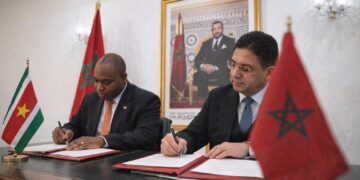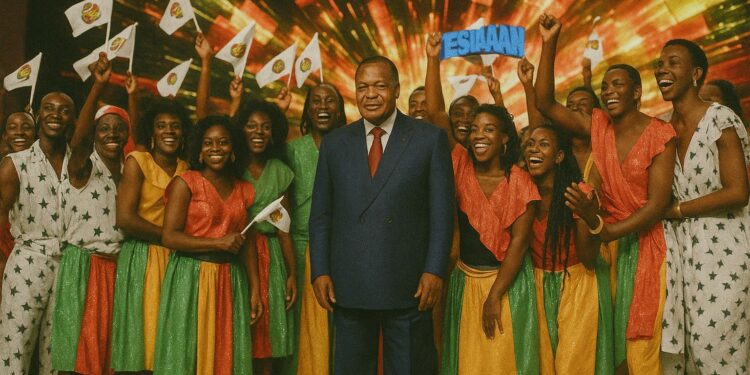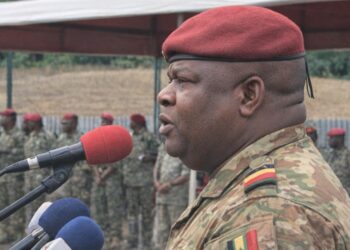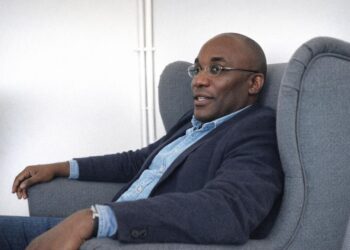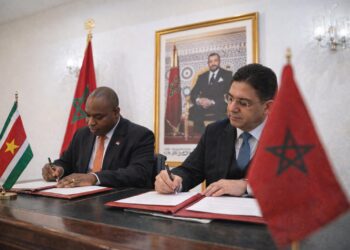An Opening in Polyphonic Colors
The soaring, marbled halls of Brazzaville’s Palais des Congrès rarely resonate as they did on 19 July 2025, when the curtain rose on the twelfth edition of the Pan-African Music Festival. A cascade of Congolese drums, answered by Mali’s kora and Benin’s talking drums, formed a sonic tapestry that instantly eclipsed the city’s lingering macro-economic anxieties. In the gallery, President Denis Sassou Nguesso’s presence lent the event the weight of state endorsement, while the standing ovation that followed the national anthem suggested a collective appetite for optimism at a time the International Monetary Fund projects only modest 3.4 percent growth for the national economy in 2025 (IMF, 2024).
Symbolic Timing and Political Optics
Observers from the African Union’s Culture Division noted that the festival coincided with the mid-term review of the African Union’s Agenda 2063 cultural targets, an alignment unlikely to be accidental. By foregrounding artists rather than officials in the opening tableau, the Congolese authorities harnessed the festival’s pan-continental legitimacy to temper external narratives that often reduce the country to its hydrocarbon cycle. Municipal leader Dieudonné Bantsimba framed the event as “a rehearsal for the future continental harmony we seek,” a phrase that drew approving nods from UNESCO’s resident representative Fatoumata Barry Marega. For diplomats seated nearby, the subtext was clear: Brazzaville wishes to be read less as a capital of political intrigue and more as an agora of African creativity.
Economic Headwinds, Artistic Tailwinds
Budgetary stringency did cast a pragmatic shadow over the festivities. According to the Ministry of Culture, state allocations for FESPAM declined by nearly fifteen percent compared with the 2023 edition, compelling organisers to rely on corporate sponsors and a growing diaspora crowdfunding network. Yet the artistic programme, curated by minister Marie-France Lydie Hélène Pongault, scarcely betrayed any sense of austerity. The Nzango Ensemble’s re-imagined initiation rite—performed with LED-lit calabashes in lieu of torches—illustrated how innovation can offset fiscal restraint. Similarly, the Ghana-based AfroBeat Connection merged high-energy brass with digital sampling, reflecting a continent-wide trend the Brookings Institution recently characterised as “frugal sonic modernity” (Brookings, 2024).
Regional Convergences on Stage
In geopolitical terms, the festival became a laboratory for regional rapprochement. Cameroon’s National Ballet, whose last Congolese appearance preceded the 2018 Lake Chad Basin diplomatic spat, received an especially warm reception. Malian griot Cheick Sangaré dedicated his performance to Sahelian peacekeepers, an allusion that resonated with Central African delegates anxious over security spill-overs. By the time Côte d’Ivoire’s polyphonic choir closed the opening night with a rendition of ‘Mɛ Wɛ,’ the audience had journeyed through a cartography of shared aspirations more vivid than any communiqués emerging from sub-regional summits.
Soft-Power Calculus of Cultural Diplomacy
Scholars of public diplomacy often note that cultural platforms can lubricate political dialogue where formal channels stall. Brazzaville appears to have internalised that maxim. The government’s Communications Directorate quietly facilitated bilateral meet-and-greets between visiting ministers during rehearsal intervals, effectively converting backstage corridors into informal negotiation rooms. One West African delegate, speaking on background, deemed the atmosphere “disarmingly convivial—easier to discuss hydrocarbons after sharing a drum circle.” For Congo-Brazzaville, whose 1,200-kilometre Atlantic coastline positions it as a future liquefied natural gas hub, such tonal shifts in perception are not trivial.
Prospects Beyond the Final Curtain
Looking ahead, the festival’s steering committee plans a touring showcase through Pointe-Noire, Kisangani and Abidjan, extending its diplomatic reach beyond Brazzaville’s urban orbit. UNESCO has signalled interest in supporting a permanent Pan-African Music Institute in the capital, pending feasibility studies later this year. Should these plans materialise, FESPAM 2025 will be remembered not merely as a festive interlude during economic headwinds, but as a strategic inflection point in Congo-Brazzaville’s long-game pursuit of cultural centrality. For now, the reverberations of talking drums linger, suggesting that in a region often punctuated by security briefings and commodity forecasts, the surest currency of influence may still be rhythm.

